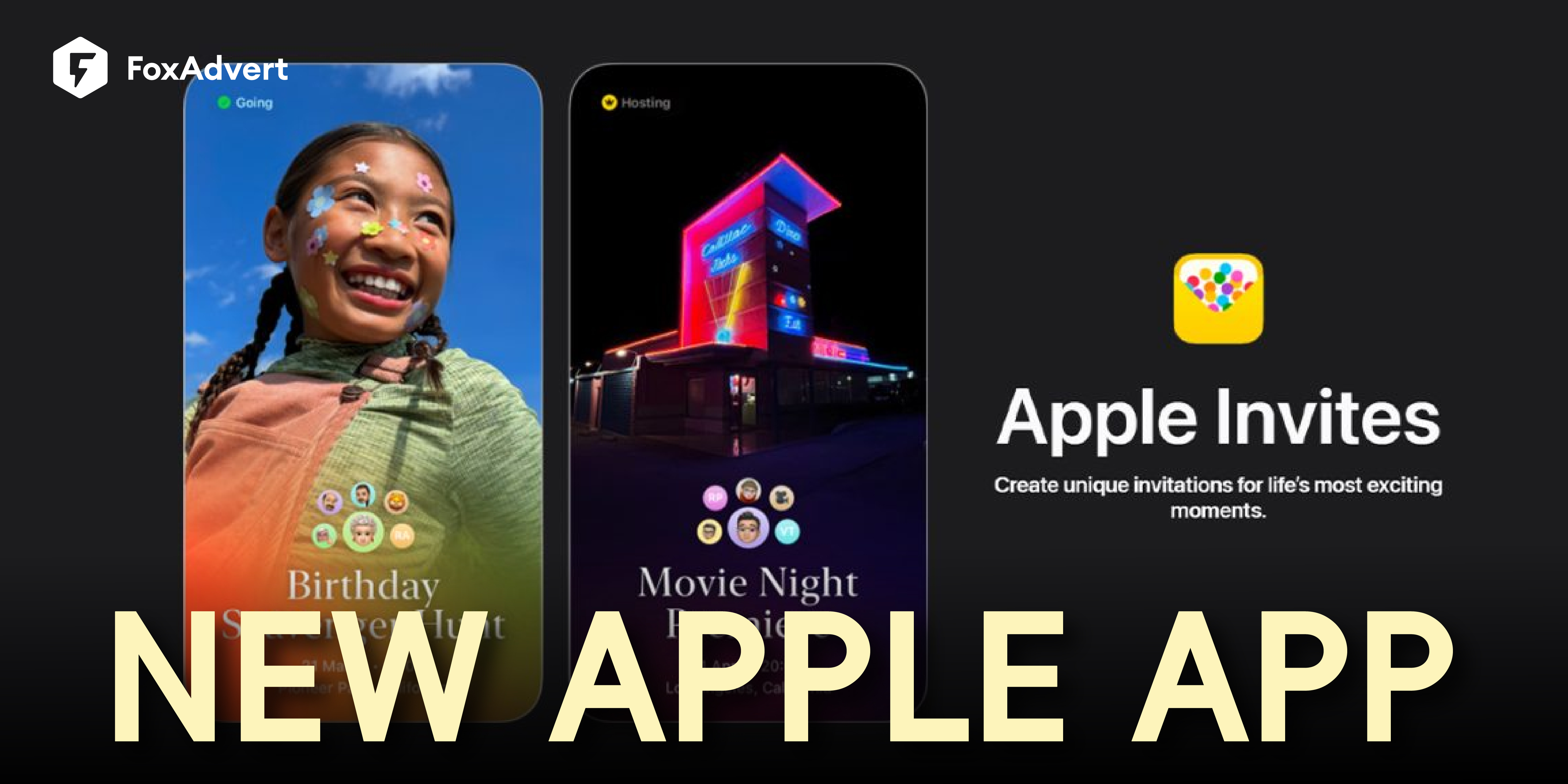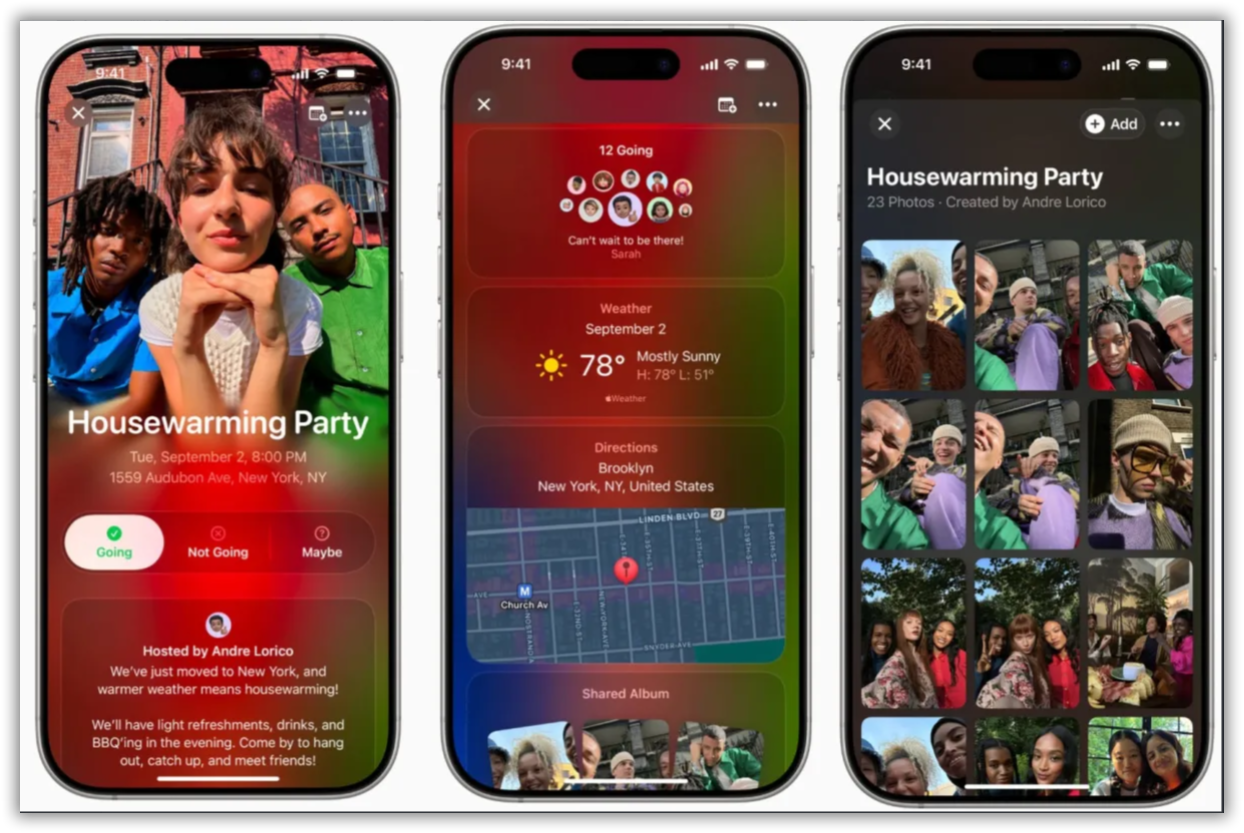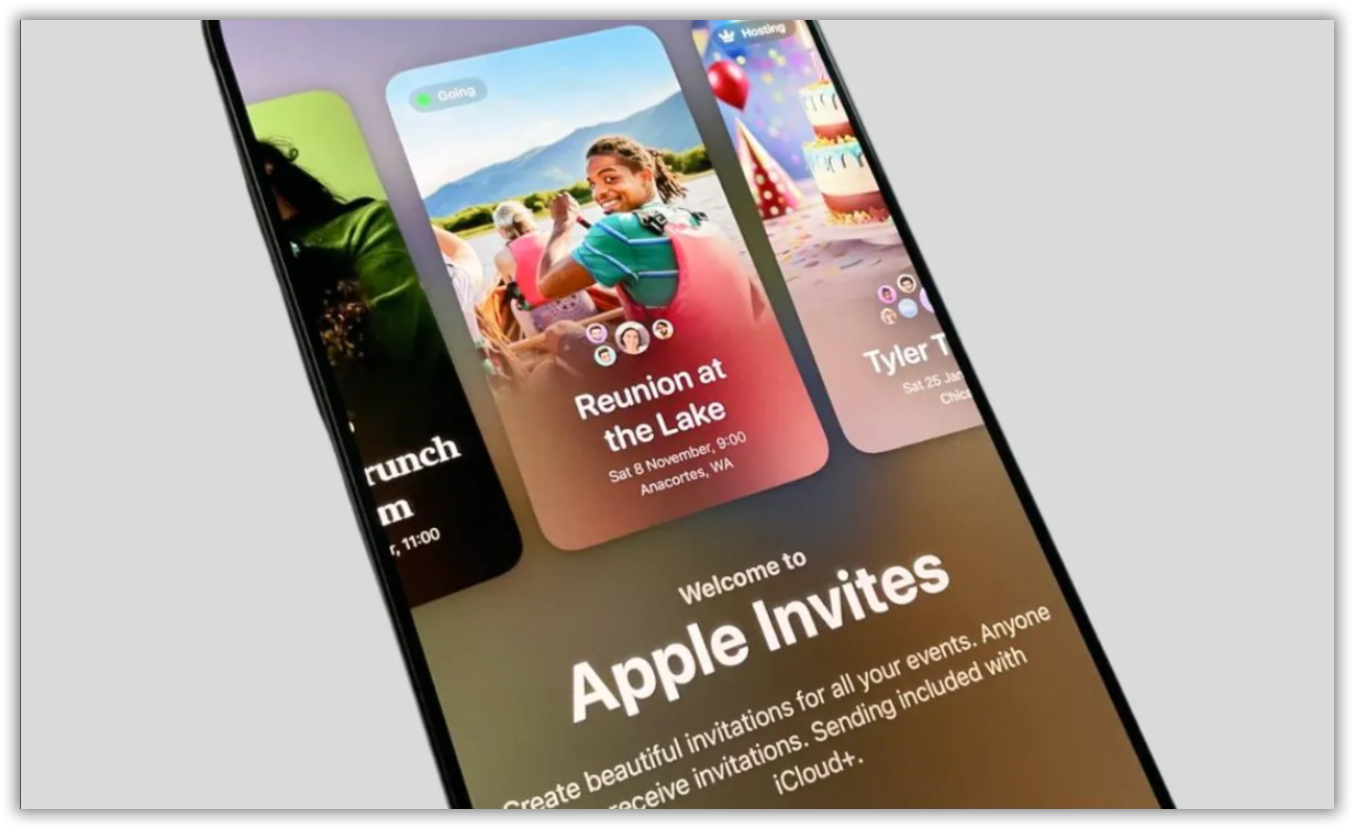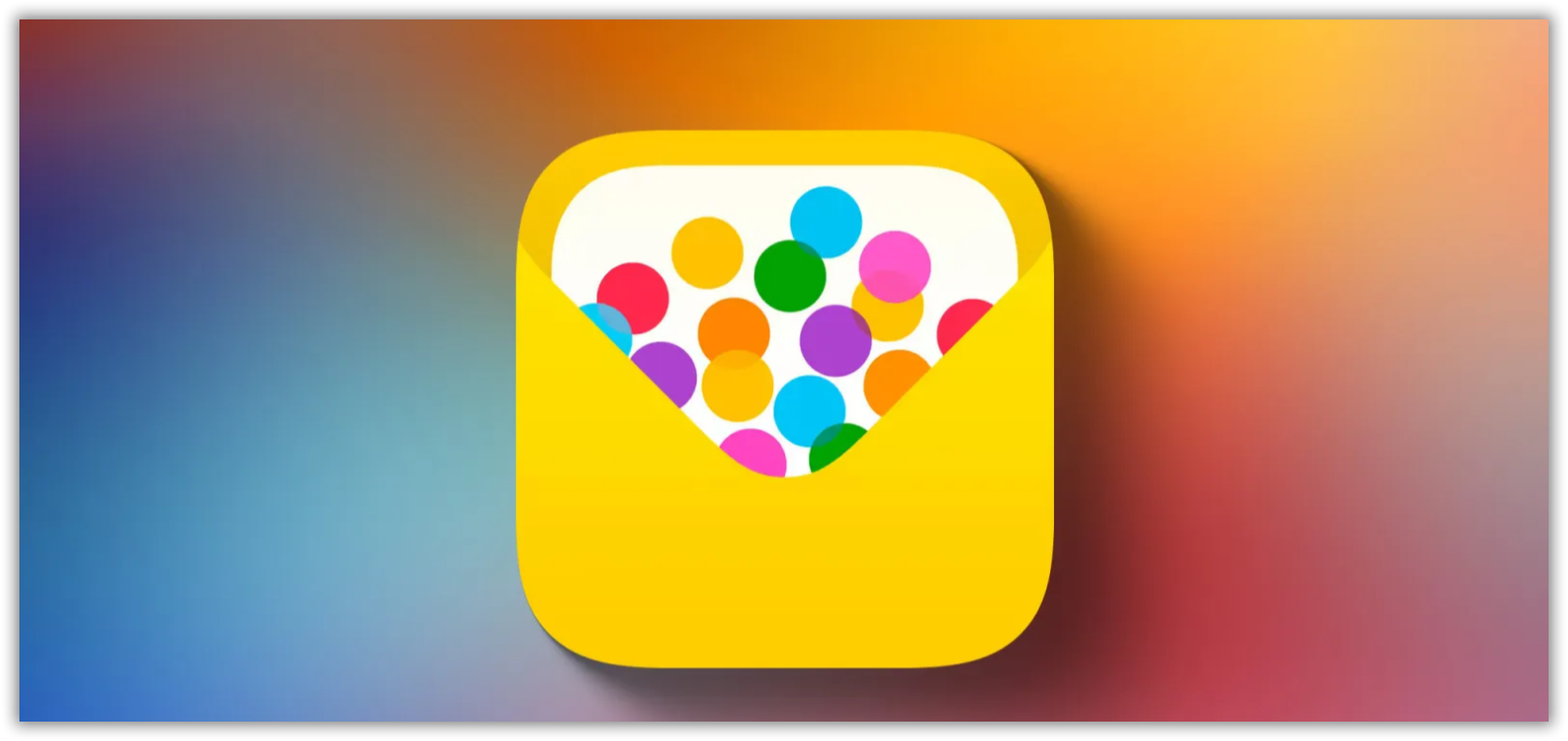
On February 4, 2025, Apple introduced its latest app, Apple Invites, designed to help users create, share, and manage event invitations. Available for free on the App Store and accessible through the web at icloud.com/invites, this new app allows iPhone users running iOS 18 or later to easily craft personalized invitations for any occasion. With features like RSVP management, weather forecasts, and integrated event details, Apple Invites offers a smooth, integrated solution for organizing events—especially for users already entrenched in the Apple ecosystem.
To create an invitation, users need an iCloud+ subscription, although anyone can RSVP, whether or not they have an Apple device. The app aims to replace third-party services like Partiful—a popular app that won the Best App of 2024 on Google Play—by offering similar functionality, such as customizable invitation templates and a collaborative photo album. The app is also competitive with other popular event invitation services, such as Evite, Paperless Post, and Sendo Invitations.
Apple Invites allows users to choose event details like time, location, and even select a custom background. Users can opt for a photo from their library or, if their device supports Apple Intelligence, create unique images through the Image Playground feature. The app integrates with Apple Music, enabling hosts to build a playlist for the event, and incorporates Apple Maps for directions and a weather forecast widget to keep guests informed.
For attendees, the experience includes the ability to RSVP, access event information, and contribute photos and videos to a dedicated shared album. Users can also communicate event updates via notes, and guests can control what personal information they share with others.
However, the app’s full potential is realized primarily by those who are already immersed in Apple’s ecosystem. For example, Android users face some limitations, such as needing to sign in with an Apple ID to view photo albums or fully experience shared music playlists, as an Apple Music subscription is required to hear the playlist in its entirety.
Despite these drawbacks, the app's seamless integration with Apple's existing products such as iCloud and Apple Music makes it a convenient option for users who are already invested in the Apple ecosystem. But for those outside of it, the experience is a bit more cumbersome, leading to some criticisms regarding its accessibility.
Apple’s introduction of this app raises questions about innovation in the tech space, particularly in how Apple often competes directly with third-party developers. This pattern of“Sherlocking”—creating in-house alternatives to popular third-party apps—has sparked some debate, with Partiful’s co-founder, Shreya Murthy, pointing out the similarities between the two platforms.
The internet has greatly shortened the distance between people. What once required phone calls and text messages has evolved into instant video calls, voice messages, and real-time online gaming. This technological evolution reflects a clear trend: advancements in technology have made interaction and communication faster and more convenient.From the perspective of an ordinary mobile user, I sometimes wonder: aside from synchronous messaging, voice calls, and online games, how can people build deeper connections?
Perhaps Partiful, which won the Best App of 2024 on Google Play, holds some answers. Imagine this: after a video call, the connection between two friends fades once the conversation ends. But if there was a way to share future experiences or activities together in a more meaningful way, wouldn’t that bring people closer again?
App development must address real market demands. Products that cater to these genuine needs always find a place in the market. Apple Invites offers insight into how an app can facilitate human connections in ways beyond traditional communication methods. This concept could spark new ideas for app developers—whether it's about organizing events or enabling more seamless ways for users to stay engaged with each other. Additionally, apps that help people in more everyday contexts—like assisting with tasks when they need an extra hand—are key to fostering deeper user connections. For example, imagine the convenience of knowing someone is nearby when you forget an important item at home.
As Apple continues to deepen its ecosystem, the launch of Apple Invites is an intriguing step toward strengthening its grip on the everyday lives of its users. For those who are deeply integrated into the Apple ecosystem, this app has the potential to be a game-changer. With its seamless integration with services like iCloud, Apple Music, and Apple Maps, it could easily become a favorite tool for Apple users, making event planning more efficient and intuitive.
However, the real question is whether this app will resonate with the broader Apple user base. Will it become a widely adopted tool, effortlessly fitting into the routines of millions, or will it fall short, unable to capture the imagination of users who may find third-party apps like Partiful already meet their needs? Apple’s push for innovation often raises questions about how well it can balance creating something truly new while staying true to what users want.
Only time will tell whether Apple Invites can carve out its place in the crowded world of event planning apps. For now, we’ll be watching closely to see if it can win over the Apple community, or if it will struggle to gain the recognition and popularity Apple so often strives for in its product launches.